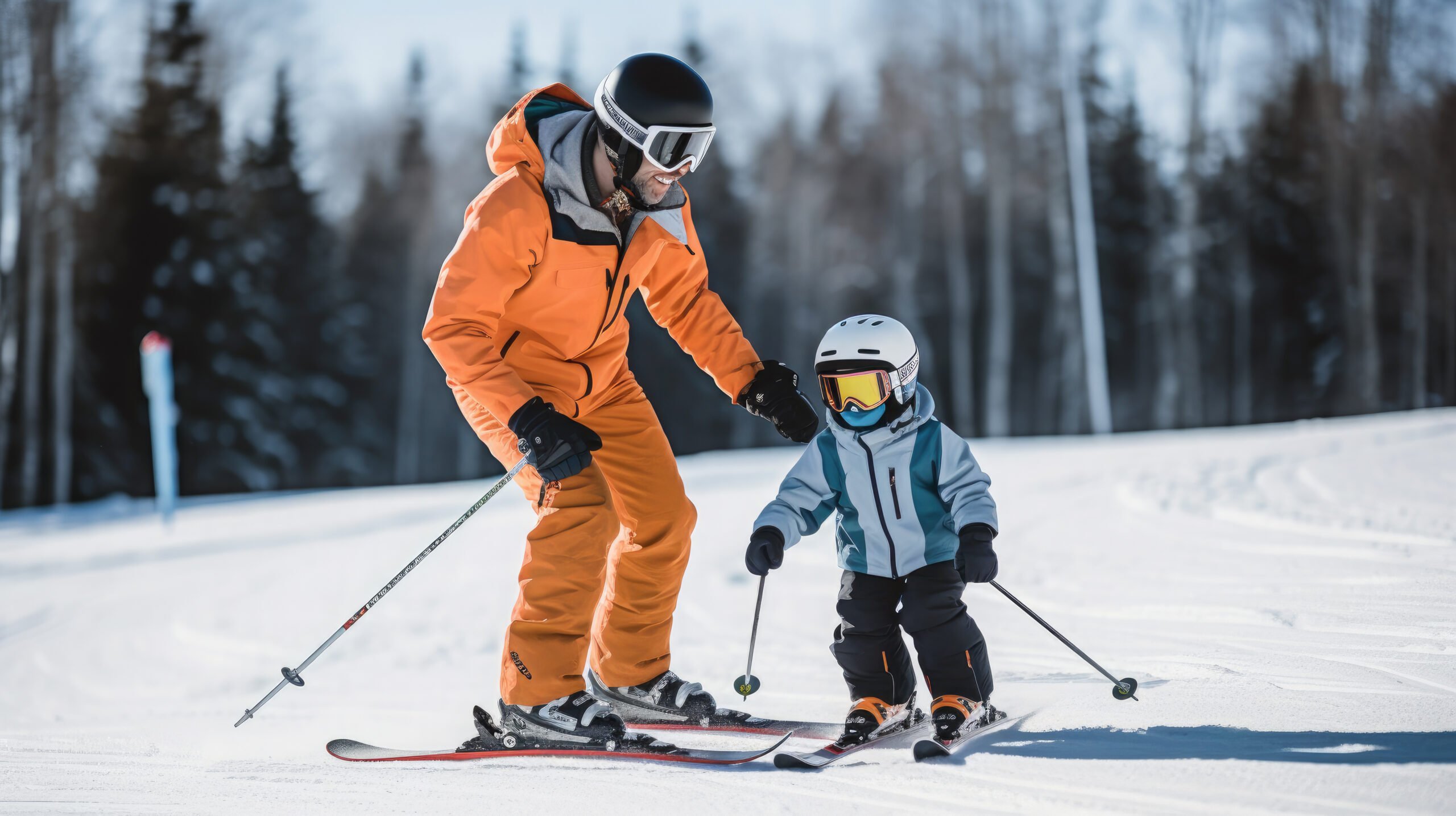We all know that the return flight from the slopes is different to the one out there. There is the inevitable sight of a few poor souls whose holidays have been cut short and who face weeks ahead of rehab and possibly surgery.
Eager to bomb, carefree, down mountains many of us forget that we are in fact either not as fit as we thought, possibly not as good as we hoped or worse still (like me) both!
Even for those who are fit, all it can take is an unexpected edge or patch of ice and the holiday can come to a juddering halt. This short piece won’t teach you how to ski but may just help prevent you from returning home with a nasty injury!
What are the most common skiing injuries?
Heads, shoulders, knees and…..thumbs. Actually the list is far more extensive but these are the most common.
Most people now ski (very sensibly) with helmets. While not perfect they do offer considerable protection in case you have a head injury.
Dislocated shoulders and torn shoulder muscles occur when either falling directly on to your shoulder or on to an outstretched hand.
Knees are the absolute classic skiing holiday ruiner. Generally when I ask patients how they did it, the answer is not one of high speed extreme skiing but instead the result of falling over while clipped into skis but completely stationary or perhaps catching an edge or crossing the skis while going slowly. The knee ligaments can damage easily with skis attached and the results can take many months to heal.
Skiers thumb is another common injury and occurs when falling over while holding a ski pole. The thumb is forced into an unusual position damaging the stabilising ligaments.
Besides this, there are soft tissue injuries like muscle sprains.
How can I prevent getting injured?
While there is of course no fail-safe way to avoid injury there are some important things to remember:
- Get ski fit! Before you head off please spend some time in the weeks beforehand trying to build up the necessary muscle groups so that you can enjoy your holiday right the way through and not become a victim! Muscles tire as the day goes on and it is when they are tired that they fail to provide the support needed to avoid injuries.
- You are probably not ski fit on day 1! Much like any other activity it’s a good idea to warm up and stretch before you charge off for the first lift. Although you will enjoy the effects of gravity you will also be using many muscle groups that you haven’t perhaps used for a while. Stretching and warming up before you set off and stretching at the end of the day will help reduce injuries.
- The correct ski kit. Please get your bindings checked. They need to be adjusted for your weight and ability. Too tight and they won’t release when you fall- significantly increasing the likelihood of a knee injury and too loose and you may find them unnecessarily detaching from your feet.
- Long lunches. De rigueur for a day on the slopes it is helpful however to try and remember that a long lunch up the mountain does necessarily mean that there is a ski back down the mountain afterwards perhaps with wobbly legs. I don’t know the statistics on this but I suspect the post prandial ski injury is especially common.
- Other skiers/boarders. Unfortunately, despite taking all necessary precautions there is nothing one can do about other skiers who are not as careful and usually out of control. Crowded ski slopes call for extra caution and ideally eyes in the back of the head. It’s helpful to expect the unexpected!
- Wear a helmet!
What do I do if I injure myself?
This obviously depends on the type and severity of injury. Unfortunately, some injuries will mean the end of the ski part of the holiday. Severe head or bone injuries should result in the skier being taken off the mountain by appropriately trained people. If in doubt don’t move or try and move someone else.
Head Inuries
Head injuries, especially involving loss of consciousness, need to be assessed by an appropriately trained person.
Knee Injuries
Knee injuries may be either a slight sprain or a more serious injury such as ligament rupture. As mentioned, it doesn’t have to be a dramatic fall for a significant injury. A significant injury will often result in the knee swelling up and perhaps locking so that you can’t straighten or bend it. You may well not be able to walk on it let alone ski. A significant knee injury will result in the skier being removed from the mountain. A scan will quickly reveal the extent of the injury. Choice of management isn’t always straightforward. If you’re lucky then anti-inflammatories and ice will be enough however if unable to weight bear, then crutches and further specialist help will be required.
Shoulder Injuries
Significant injuries to shoulders or other parts of the body may result in obvious deformity and very likely reduced range of movement. If in any doubt get a review off the mountain as quickly as possible, apply ice and take some simple pain killers such as Nurofen and paracetamol.
Other injuries to shoulders and other parts of the body may be to the soft tissues (muscles and ligaments). They may respond to ice and anti-inflammatories (provided you can take them safely). If in any doubt, either due to pain or the fact they are not improving, or a part of the body feels unstable then please get it checked out either in resort or at home.
Returning to the UK
When you return to the UK with an injury and you have any doubt about the next step in management or rehabilitation then please get in touch. Significant knee injuries may require surgery but this is not always the case and getting appropriate advice on this is key.
I hope this is helpful. Please have a wonderful and safe time out on the mountains if you’re lucky enough to be going.
If you have any questions or concerns either before you go away or on your return from your holiday, please make an appointment online here or call us on 0207 245 3999.
Article produced by Sloane Street Surgery, a private GP practice in London that provides world-class private healthcare for patients in Chelsea, Knightsbridge, Belgravia, West London, Hampshire, and beyond.
About the author

BA (Hons) MB BSMRCGP
“The most fulfilling part of this job is making a real difference to patients with timely diagnoses and supporting them going through a difficult time”.
I enjoy the full variety of General Practice and recognise the benefits in both continuity and time that private care affords. I have a particular interest in disease prevention, chronic disease management and paediatrics.
The key to our success is maintaining and improving our patients’ health, managing chronic disease meticulously and working alongside the best specialists when needed.



